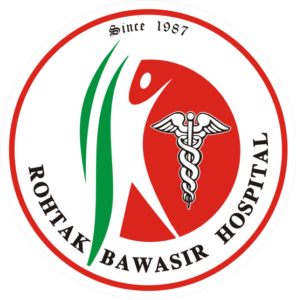Exploring Ayurvedic Solutions for Piles: Can Ancient Wisdom Help?


Updated on: 4th Jun 2024
Piles, or hemorrhoids, are swollen blood vessels in the rectum and anus that cause discomfort, pain, and sometimes bleeding. This condition, while common, can significantly impact an individual’s quality of life, affecting day-to-day activities, causing discomfort during bowel movements, and leading to anxiety over recurring symptoms. While modern medicine offers various treatments, there is a growing interest in Ayurveda for piles relief due to its holistic approach. Ayurveda, the ancient Indian system of medicine, focuses on balancing the body’s energies, using natural remedies, dietary recommendations, and lifestyle adjustments to manage and prevent health conditions. For those seeking alternative solutions, Ayurvedic treatments offer a valuable, time-tested approach.
How Ayurveda Views Piles
In Ayurveda, piles are referred to as “Arsha,” which is understood as a condition that brings discomfort and pain, akin to an enemy in one’s body. Ayurveda classifies Arsha based on the body’s three doshas—Vata, Pitta, and Kapha—each representing a different type of body imbalance. The approach to treating piles in Ayurveda is to restore balance to these doshas by addressing the root cause, whether it be poor digestion, improper diet, or lifestyle factors. This ancient science considers piles not just a physical condition but also a symptom of deeper systemic imbalances, which can be managed through diet, herbal medicine, lifestyle changes, and specific Ayurvedic therapies.
The Role of Diet in Ayurvedic Treatment for Piles

A central aspect of Ayurveda is maintaining digestive health, which is essential for preventing and treating piles. Ayurveda emphasizes a diet rich in fiber, hydration, and foods that are easy to digest. Key dietary principles include:
High-Fiber Foods: Foods like whole grains, leafy greens, and fibrous fruits help promote smoother bowel movements, reducing strain during defecation.
Hydration: Proper hydration ensures that stools remain soft and easy to pass. Ayurveda often recommends herbal teas or warm water infused with herbs like fennel and cumin.
Avoiding Spicy and Oily Foods: Spicy and fatty foods can aggravate the Pitta dosha, leading to inflammation and worsening piles symptoms.
Incorporating Ghee: Ghee is often recommended for its soothing and anti-inflammatory properties. When taken in moderation, it can help ease the digestive process.
At Rohtak Bawasir Hospital, diet plays an integral role in Ayurvedic treatment plans, ensuring patients receive holistic and balanced guidance to support their recovery.
Ayurvedic Herbs Commonly Used for Piles

Ayurveda is well known for its use of medicinal herbs, each with specific properties to target different symptoms. Some of the most effective herbs for managing piles include:
Triphala: Known for its mild laxative and cleansing properties, Triphala aids in improving digestion and relieving constipation. It helps prevent straining, which can exacerbate piles.
Haritaki: This herb, often included in Triphala, is known for supporting colon health and regulating bowel movements.
Aloe Vera: Recognized for its cooling and anti-inflammatory properties, Aloe Vera is used in Ayurvedic medicine to soothe and reduce inflammation in piles.
Neem: Neem is an antiseptic and anti-inflammatory herb that helps to cleanse the system, promoting healing and preventing infection in hemorrhoidal tissue.
Guggul: Guggul is highly valued for its anti-inflammatory properties, helping reduce swelling in piles and supporting faster recovery.
At Rohtak Bawasir Hospital, Ayurvedic practitioners carefully select herbal combinations tailored to each patient’s dosha constitution and severity of symptoms, ensuring a personalized treatment plan.
The Kshar Sutra Therapy: An Ayurvedic Surgical Approach

While Ayurveda generally emphasizes non-invasive treatments, it also has a surgical option called Kshar Sutra for severe cases of piles. Kshar Sutra is a unique Ayurvedic technique involving a medicated thread coated with herbal alkalis. This thread is applied to the hemorrhoid, cutting off its blood supply and allowing it to shrink and fall off naturally.
The treatment is considered minimally invasive, with few side effects and a lower risk of infection. Patients undergoing Kshar Sutra therapy often experience quick relief and shorter recovery times compared to traditional surgery. Rohtak Bawasir Hospital specializes in Kshar Sutra therapy for piles, offering patients an Ayurvedic alternative to conventional surgery that is effective and widely respected in the Ayurvedic medical community.
Panchakarma: Detoxification for Long-Term Relief

Panchakarma is an Ayurvedic detoxification procedure used to balance the body’s doshas. For patients suffering from piles, Panchakarma offers a way to cleanse the digestive system, promote bowel regularity, and restore digestive fire, or “Agni.” Key Panchakarma therapies beneficial for piles include:
Basti (Enema Therapy): A medicated enema is administered to cleanse and soothe the digestive tract, promoting bowel regularity and relieving constipation.
Virechana (Purgation Therapy): This is a controlled purgation process that flushes out toxins and helps alleviate constipation, reducing piles symptoms.
Abhyanga (Oil Massage): Abhyanga involves applying warm herbal oils to improve circulation, ease stress, and reduce inflammation in the body, providing relief from piles discomfort.
Panchakarma is effective in preventing piles recurrence, as it purifies the system and strengthens digestive health. Rohtak Bawasir Hospital incorporates Panchakarma for patients requiring comprehensive detoxification as part of their Ayurvedic piles treatment program.
The Importance of Lifestyle Adjustments

Ayurveda promotes lifestyle adjustments as an essential component of managing piles. Stress, lack of physical activity, and poor dietary habits can worsen piles symptoms, making lifestyle changes crucial for effective treatment. Recommendations include:
Regular Physical Activity: Gentle exercises, such as yoga or walking, can improve bowel movements and reduce the risk of constipation. Certain yoga poses like Malasana (Garland Pose) are beneficial for piles, promoting better blood flow in the pelvic area.
Stress Management: Stress contributes to digestive issues that can worsen piles. Techniques like meditation and breathing exercises are recommended to manage stress.
Daily Routine (Dinacharya): Ayurveda emphasizes the importance of maintaining a daily routine, including regular mealtimes and sleeping patterns, which contribute to digestive health and overall balance.
The Ayurvedic lifestyle at Rohtak Bawasir Hospital includes a personalized regimen for each patient, encompassing dietary guidance, daily practices, and stress management techniques.
Comparing Ayurveda with Conventional Treatments
Ayurveda offers a distinct approach to piles, focusing on the root cause rather than merely addressing symptoms. In contrast, conventional treatments, such as over-the-counter medications, often provide temporary relief without addressing underlying digestive imbalances. Surgical procedures, while sometimes necessary, carry risks and may lead to recurrence. Ayurveda, through its comprehensive approach, aims to reduce recurrence rates by promoting lasting lifestyle and dietary changes. However, Ayurvedic treatment requires patience and consistency, as natural remedies may take longer to show results compared to instant-relief medications or surgery.
Patient Success Stories at Rohtak Bawasir Hospital
Rohtak Bawasir Hospital has treated numerous patients using Ayurvedic methods, and many have reported positive outcomes. These success stories illustrate how Ayurvedic solutions, including personalized diets, herbal remedies, and Panchakarma treatments, have helped patients achieve relief from piles symptoms and improve their quality of life. The hospital’s Ayurvedic practitioners emphasize individualized care, working closely with patients to monitor their progress and adjust treatment plans as needed.
Sitting in a warm bath for 10-15 minutes can help soothe the itching and pain associated with Bawasir. Adding Epsom salts to the water can provide additional relief.
Conclusion
Ayurvedic treatments for piles offer a gentle yet effective alternative to conventional medicine, focusing on holistic healing and prevention of recurrence. By addressing the root causes and restoring the body’s balance, Ayurveda provides patients with a natural way to manage piles. At Rohtak Bawasir Hospital, experienced Ayurvedic practitioners work closely with each patient, combining time-tested techniques with personalized care to offer a well-rounded, comprehensive approach to piles management. For those seeking long-term relief, Ayurvedic treatments can be a valuable path forward, blending ancient wisdom with modern application.
Meet Our Specialists

Dr. Raj Kumar Garg (B.A.M.S.)
40+ Years of Experience

Dr. Rahul Garg (B.A.M.S.)
15+ Years of Experience

